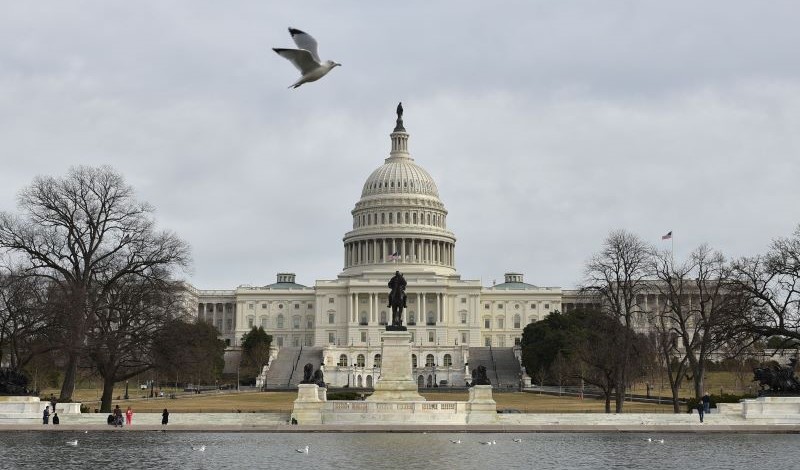
Acting officials in high-level roles can undermine the accountability of the Senate appointments process.
Every time there is a new President, and especially when there is a change in parties, all of the top jobs in the executive branch become vacant, many by resignation and others when the President removes incumbents. Most of these positions require confirmation by the U.S. Senate. Because the U.S. Constitution directs the U.S. Congress to convene on January 3, the Senate can investigate and hold hearings on the incoming President’s—unofficial—nominees before the inauguration on January 20 and confirm the most important nominees soon after the President is sworn in. But that process still leaves many positions open for weeks or more, which raises the questions of who, if anyone, can act to fill those vacancies and what, if any, limits there are on the decisions that an acting appointee can lawfully make.
One answer might be that no one can fill in for these high-level officials. The Appointments Clause is very clear on its requirements for appointing principal officers, with the next clause expressly granting the President the “Power to fill up all Vacancies that may happen during the Recess of the Senate.” These transition vacancies, however, do not occur when the Senate is in recess. Moreover, if this clause were available to fill them, it would enable the President to fill the positions with recess appointments that would “expire at the End of their next Session”—which would mean that President Trump could bypass the Senate and fill all of his appointments through December 2026—thereby largely bypassing the advice and consent process. The most determined opponents of vacancy appointments might argue that the recess appointments provision is exclusive and that there can be no vacancy appointments for those positions that require Senate approval. That approach might have been practical in 1787, with many fewer federal officers and much longer recesses, but it would seriously interfere with the functioning of the federal government today and is also inconsistent with the long history of vacancy appointments.
One alternative is to leave all decisions about filling vacancies to Congress, which can pass all the laws that it considers necessary. Congress, the argument goes, is in the best position to assess the pros and cons of allowing the President to fill vacancies, under what conditions, by whom, and for how long. And the Senate has a vested interest in its advice and consent function not to give too much power to the President. Moreover, Congress can revisit the question if it concludes that the balance needs to be restruck, either generally or with respect to specific offices or the conditions under which a particular vacancy can be filled.
But the conclusion that Congress may establish general conditions under which vacancies can be filled for the heads of agencies and other important positions does not mean, both as a policy matter and under the Constitution, that an acting official should be allowed to carry out every action that the law permits an officer who has been Senate confirmed to perform. In theory, Congress could designate decisions that only a confirmed officer can take, but that seems an unrealistic approach. There are too many offices, with too many different functions, for Congress to be able to do a thorough and thoughtful job. It would be helpful if Congress made clear that certain decisions could not be made by acting officers, but that should not be the sole protection available to the public.
Leaving the decision to Congress alone assumes that the Constitution does not impose any restrictions on what an acting officer may do. The commands of the Appointments Clause, several recent rulings by the U.S. Supreme Court, and basic principles of accountability strongly suggest that there are some limits on what a person filling in for an officer who is required to be confirmed by the Senate can do. The Appointments Clause is not a housekeeping tool, but a vital part of the system of checks and balances built into our separation of powers. As noted above, there is a non-frivolous argument that all exceptions must satisfy the recess appointment provisions, but at least the spirit of the provision must be honored, lest the President find excuses to avoid having to persuade the Senate to approve his nominees.
In two recent cases, Lucia v. Securities and Exchange Commission and United States v. Arthrex, the Supreme Court strictly enforced the Appointments Clause, in the former case to ensure that the inferior officers were properly appointed and in the latter to require that an inferior officer be subject to supervision by a presidentially appointed, Senate-confirmed principal officer when the inferior officer makes certain significant decisions. Allowing acting officials to carry out all the functions of a duly confirmed principal officer would seem to be inconsistent with these decisions, even if not a direct violation of the Appointments Clause.
Two examples in the first month of the Trump Administration illustrate how accountability suffers when acting officials make very significant decisions. Emil Bove, the acting deputy attorney general whose name has never been sent to the Senate, has been the nominal U.S. Department of Justice official behind the decision to dismiss the corruption indictment against New York City Mayor Eric Adams. The proposed dismissal—if followed through—would be without prejudice, meaning that the Justice Department could reindict Adams if he did something to displease the Trump Administration, such as not helping to remove undocumented aliens from this country. It seems highly improbable that a decision of this magnitude was made by an acting deputy attorney general, but if it was, how will he, or whoever gave him that title, be held politically accountable, assuming that the deal is consummated? Or consider the havoc caused by the interim U.S. attorney for the District of Columbia, Edward R. Martin, Jr., who has fired and demoted scores of prosecutors solely for working on the January 6 cases that they were assigned to handle. Can he just walk away from the chaos he has created, or does the fact that he has been nominated to fill the position suggest that the Senate—or its Democratic members—have a chance to make him explain what he did and why?
In addition to the lack of accountability for these and the numerous other actions undertaken by acting officers chosen by the Trump Administration, there are also some decisions, including to dismiss the Adams case and to engage in a massive purge of the U.S. Attorney’s Office for the Southern District of New York, that are too important substantively to be made by someone who has not been confirmed as a principal officer. Those actions would also include, for example, the decision to issue —or to revoke—a major rule or to file an antitrust action against a giant in the tech industry. A truly aggressive President might also fill a vacancy at an agency with significant adjudicative authority with an acting official who could then issue a final decision adverse to a private party. To be sure, drawing the line between taking actions “to keep the trains running” and deciding matters of great significance will not be clear, but the alternative is to allow a President to use acting officials to make significant decisions without Senate confirmation, which is a vital check on executive power.
There is one other issue surrounding unlawful decisions by acting officials: To what extent should subsequent ratification by a Senate-confirmed principal officer save an action from being overturned? This question will arise only in the most significant cases, and the answer is likely to be fact-dependent, based on considerations such as the time between the action and the ratification, whether there was a good-faith belief that the acting official had the authority to take the challenged action, and whether the original action was taken to shelter the administration from accountability. Again, whatever the answer, it cannot be that ratification can always cure unlawful actions taken by an acting official, or there would be no meaningful limits on acting officers.
One objection to imposing limits on what an acting officer can legally do is that a Senate controlled by the President’s opposing party might refuse to confirm significant presidential appointees, as Republicans did when President Barack Obama sought to fill the seat vacated when U.S. Supreme Court Justice Antonin Scalia died in early 2016. But holding up a lifetime Supreme Court appointment is rather different politically from a wholesale denial of an incoming President’s choices for a cabinet position. That said, the possibility cannot be disregarded completely, which creates the dilemma caused by unfilled vacancies. Others may strike a different balance, but to me there is a far greater potential for harm to the Republic from too much power given to acting officials than from the possibility that an intransigent Senate may threaten to halt the work of the executive branch.
Whatever the answers to these questions, it should be clear that it is time to start thinking more about the limits that need to be imposed on acting federal officials and the importance of those limits to the checks built into the Constitution.




